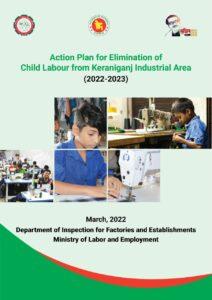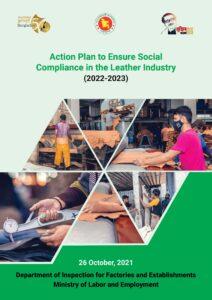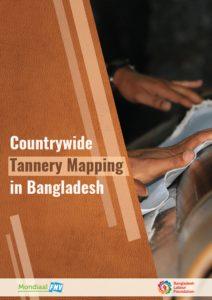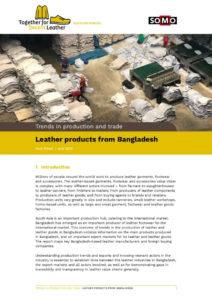The Impacts of The Covid-19 Crisis on Leather Workers in Bangladesh, Pakistan and India

The coronavirus pandemic has wreaked havoc around the world since late 2019, and the end is not yet in sight. We have seen a high number of fatalities and patients, overwhelmed public health institutions, as well as economic setbacks. Among the global sectors that were hit hard by the pandemic, the garment and footwear manufacturing industries took severe blows. In this short paper, we highlight the effects of the coronavirus pandemic on a particular sub-sector of the global garment and footwear industry: the leather-based garment, footwear and accessories industry.
The pandemic has had a huge impact on the industry, particularly on workers. We want to bring to light the dramatic consequences of the crisis on leather workers in Bangladesh, Pakistan and India by portraying six workers. They speak about their experiences during the first lockdowns in 2020 and how the pandemic has affected them in terms of employment, livelihoods, rights, and how they fear for the future.
Millions of people worldwide work to produce leather garments, leather footwear and leather accessories. This global production network includes various phases, from animal husbandry to slaughter; from the tanning of raw hides to the finishing of leather; from the cutting of leather components to the production of a wide variety of leather end-goods, such as jackets, trousers, shoes, gloves, bags, trunks, and accessories.
Like the garment and textile industry in general, leather-based garment production is strongly globalised; cattle may be raised in China, hides processed into leather and leather turned into shoes, coats and accessories in Bangladesh, and the endproducts marketed in Europe by US-based brands.
South Asia is an important production hub in this global network. Bangladesh, India and Pakistan are important producers of (semi-) finished leather and various types of leather products for the international market. Each of these three countries has its own particular niche and associated industrial structure. India is an important producer of leather footwear as well as leather trunks, bags and suitcases for export. Bangladesh produces leather and leather goods, particularly shoes and to a lesser extent belts, bags, suitcases and wallets. Pakistan specialises in leather apparel, in particular leather gloves. From the perspective of international end-buyers, the value chain consists of a number of tiers, related to the production phases and manufacturing processes.
With the coronavirus outbreak, production came to an abrupt halt. The international transport system, including container shipping, was completely upset. Supply chains were disrupted due to a lack of inputs and later on by the cancellation of orders by brands and retailers.
This short paper has been made as a part of the Together for Decent Leather programme, which aims to improve working conditions and to reduce labour rights abuses, focusing on production hubs for leather products in South Asia – in particular in Vellore and Chennai districts in Tamil Nadu, India; greater Karachi in Pakistan; and the greater Dhaka region in Bangladesh. The Decent Leather programme particularly focuses on tanning, manufacturing, trade and retail phases of the leather and leather goods supply chain.
Our Asian partners in the Together for Decent Leather consortium have spoken with many workers about the coronavirus crisis. Bangladesh Labour Foundation (BLF), Cividep India and NOW Communities are in contact with tannery and factory workers in their respective countries on an ongoing basis. The six interviews in this paper were selected from a substantial number of interviews conducted by BLF in June 2020 in Bangladesh, by Cividep in July 2020 in India, and by NOW Communities in September 2020 in Pakistan. Both Cividep and BLF have published reports and analyses about the impacts of coronavirus on garment and leather workers in India and Bangladesh.
Added to these worker testimonies we present a set of recommendations and demands to governments and businesses, to make sure the rights of workers are better protected. For this, we consulted publications and analyses by trade unions, NGOs and improvement initiatives. We spoke extensively with our partners in Bangladesh, India and Pakistan. They shared how the coronavirus pandemic has affected their constituencies as well as their own work as civil society organisations.
Related posts




